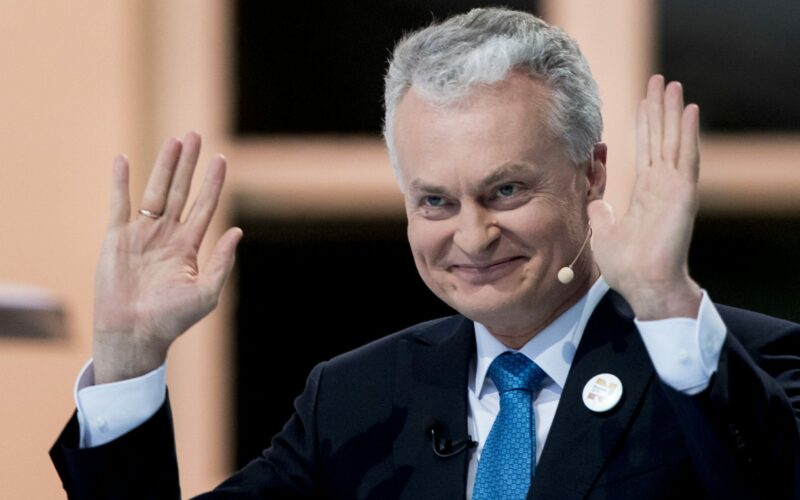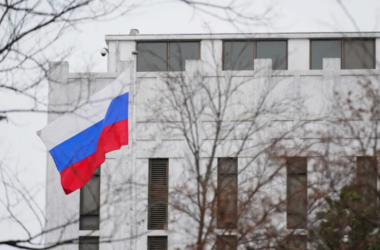Lithuania’s President Gitanas Nauseda secured re-election on Sunday in a vote highlighted by defense concerns regarding neighboring Russia, official results indicated.
The electoral commission’s count revealed that Nauseda won 76 percent of the votes with 80 percent of ballots counted after the polls closed in the second-round vote.
Voters “have handed me a great mandate of trust, and I am well aware that I will have to cherish this,” Nauseda, 60, told journalists in Vilnius.
“Now that I have five years of experience, I believe that I will certainly be able to use this jewel properly, first of all to achieve the goals of welfare for all the people of Lithuania,” he said.
His opponent, Prime Minister Ingrida Simonyte, conceded defeat in comments to reporters and congratulated Nauseda.
The Lithuanian president directs defense and foreign policy, attends EU and NATO summits, but must consult with the government and parliament on appointing the most senior officials.
While the candidates agree on defense, they have diverging views on Lithuania’s strained relations with China over Taiwan.
Both candidates agree that the NATO and EU member of 2.8 million people should boost defense spending to counter the perceived threat from Russia, and to that end, the government recently proposed a tax increase.
Lithuania is a significant donor to Ukraine. It already allocates a substantial portion of its budget to defense, with military spending equaling 2.75 percent of GDP.
The country plans to purchase tanks and additional air defense systems and to host a German brigade, as Berlin intends to station around 5,000 troops by 2027.
Simonyte, the 49-year-old candidate of the ruling conservatives, ran for president again after losing to Nauseda in the last presidential election.
The uneasy relationship between Nauseda and Simonyte’s conservatives has at times triggered foreign policy debates, particularly regarding Lithuania’s relations with China.
Bilateral ties turned tense in 2021 when Vilnius allowed Taiwan to open a de facto embassy under the island’s name—a departure from the common diplomatic practice of using the name of the capital Taipei to avoid angering Beijing.
China, which considers self-ruled Taiwan a part of its territory, downgraded diplomatic relations with Vilnius and blocked its exports, leading some Lithuanian politicians to urge a restoration of relations for the sake of the economy.
Nauseda sees the need to change the name of the representative office, while Simonyte opposed it.
But voters also cited personal differences between the candidates, as well as economic policy and human rights.
Simonyte drew support from liberal voters in bigger cities and traditional conservative voters. A fiscal conservative with liberal views on social issues, she notably supports same-sex partnerships, a controversial issue in the predominantly Catholic country.
“I would like to see faster progress, more openness… more tolerance for people who are different from us,” she said when casting an early vote.
Nauseda, who maintains a moderate stance on nearly all issues, has established himself as a promoter of the welfare state, with conservative views on gay rights.








